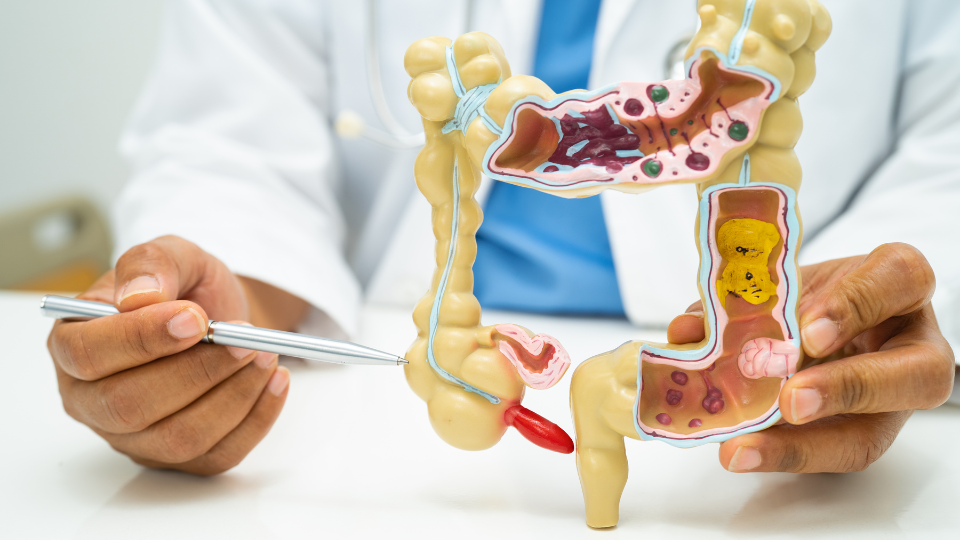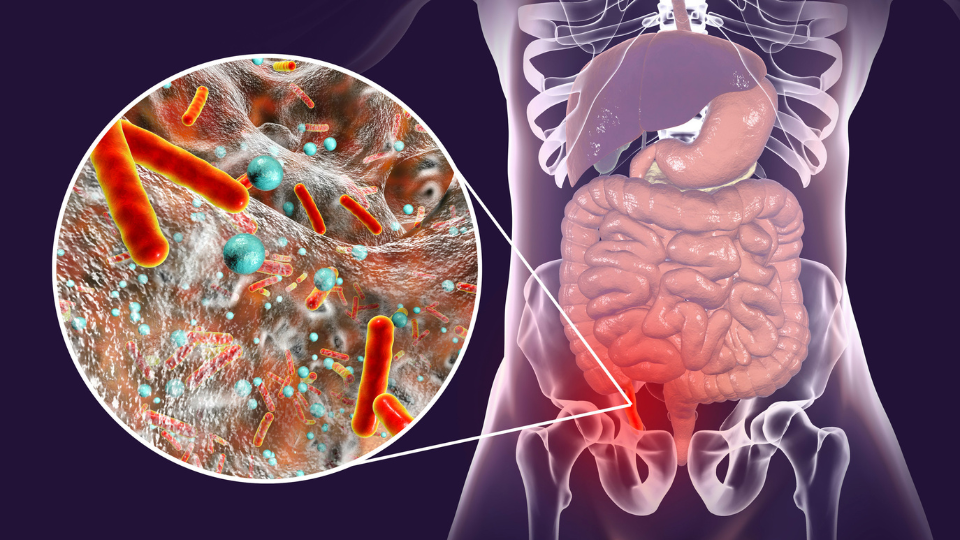Appendicitis is a common medical emergency that can occur suddenly and often requires immediate attention. Understanding the role of urgent care facilities in diagnosing this condition can be crucial for timely treatment. This article will explore how urgent care centers can assist in diagnosing appendicitis, the symptoms to watch for, and when to seek further medical help.
 Understanding Appendicitis
Understanding Appendicitis
Appendicitis is the inflammation of the appendix, a small, tube-like structure attached to the large intestine. It can occur when the appendix becomes blocked, leading to infection. If left untreated, an inflamed appendix can burst, causing serious complications. Therefore, recognizing the symptoms early is vital.
Symptoms of Appendicitis
The symptoms of appendicitis can vary from person to person, but some common signs include:
Abdominal pain, typically starting near the belly button and moving to the lower right side.
Nausea and vomiting.
Loss of appetite.
Fever and chills.
Constipation or diarrhea.
If you or someone you know is experiencing these symptoms, it is essential to seek medical attention promptly. Early diagnosis can make a significant difference in treatment outcomes.
How Urgent Care Centers Can Help
Urgent care centers are designed to provide immediate care for non-life-threatening conditions. They can be a valuable resource for diagnosing appendicitis, especially when symptoms arise outside of regular office hours. Most urgent care facilities are equipped to perform initial assessments and diagnostic tests.
Upon arrival, a healthcare provider will typically conduct a physical examination, which may include checking for tenderness in the abdomen. They may also order imaging tests, such as an ultrasound or CT scan, to confirm the diagnosis. If appendicitis is suspected, urgent care centers can refer patients to a hospital for further treatment.
In addition to the immediate assessment, urgent care centers often provide educational resources for patients and their families. Understanding the nature of appendicitis, including potential causes and preventative measures, can empower individuals to make informed health decisions. Furthermore, these facilities often have staff trained to discuss post-operative care and recovery, ensuring that patients are well-prepared for what to expect after surgery, should it be necessary.
Moreover, urgent care centers can also play a crucial role in alleviating anxiety associated with appendicitis. The uncertainty of abdominal pain can be distressing, and having access to medical professionals who can provide reassurance and clear information can significantly ease concerns. This supportive environment encourages patients to seek help sooner rather than later, which is essential for conditions like appendicitis, where time is of the essence.
When to Visit Urgent Care for Appendicitis
Knowing when to visit an urgent care center can be challenging. While urgent care can handle many medical issues, appendicitis is a condition that may require more specialized treatment. Here are some guidelines to help determine if urgent care is the right choice:
Timing and Severity of Symptoms
If abdominal pain is severe and persistent, especially if it is accompanied by fever, nausea, or vomiting, it is advisable to seek immediate medical attention. Urgent care can provide a quick assessment, but if symptoms are severe, it may be better to go directly to the emergency room. Appendicitis often presents with pain that starts around the navel and then shifts to the lower right abdomen, which can be a critical indicator of the condition. Additionally, if the pain worsens with movement or coughing, this could signal an urgent need for evaluation. Early intervention is crucial, as a ruptured appendix can lead to serious complications, including peritonitis, which is a life-threatening infection of the abdominal cavity.
Availability of Services
Not all urgent care centers are created equal. Some may have limited diagnostic capabilities or may not be open 24/7. It is essential to choose a facility that can perform the necessary tests and has access to imaging services. If in doubt, calling ahead can help clarify what services are available. Many urgent care centers are equipped with point-of-care testing and can perform basic lab work, but they may not have the advanced imaging technology like CT scans that are often required to confirm appendicitis. Understanding the capabilities of your local urgent care can save you time and ensure you receive the appropriate level of care. Furthermore, consider the proximity of the center to a hospital, as a quick transfer may be necessary if surgical intervention is needed.
The Role of Telehealth in Diagnosing Appendicitis
In today's digital age, telehealth services are becoming increasingly popular. They offer a convenient way for patients to consult with healthcare providers without needing to visit a facility in person. This can be especially beneficial for those experiencing symptoms of appendicitis.
Consulting an AI Doctor
For individuals seeking immediate advice, platforms like Doctronic.ai provide access to AI-driven consultations. This innovative service allows users to receive an initial assessment based on their symptoms, which can help determine whether a visit to urgent care or an emergency room is necessary.
Doctronic's AI synthesizes the latest peer-reviewed medical research to provide accurate information and recommendations. By using this service, patients can gain insights into their symptoms and make informed decisions about their healthcare. Additionally, the AI can guide users through a series of questions that help refine the diagnosis, ensuring that the advice given is tailored to the individual’s specific situation. This personalized approach can be particularly reassuring for those who may be anxious about their symptoms.
Benefits of Telehealth Services
Telehealth services offer several advantages, including:
Accessibility: Patients can consult with healthcare providers from the comfort of their homes.
Convenience: Telehealth visits can often be scheduled outside of regular office hours.
Cost-Effectiveness: Many telehealth services, like those offered by Doctronic, are affordable, often costing less than traditional in-person visits.
In the case of appendicitis, telehealth can serve as an excellent first step in assessing symptoms and determining the urgency of the situation. Furthermore, telehealth can also facilitate follow-up care for patients who have undergone surgery for appendicitis. Patients can easily check in with their healthcare providers to discuss recovery progress, manage pain, or address any concerns, all without the need for a potentially exhausting trip to a clinic.
Moreover, telehealth can play a crucial role in educating patients about appendicitis and its symptoms. Through virtual consultations, healthcare providers can share valuable information regarding the signs to watch for, such as abdominal pain, fever, and nausea. This proactive approach not only empowers patients to seek timely medical attention but also helps to alleviate fears and uncertainties surrounding the condition. By leveraging technology, telehealth bridges the gap between patients and healthcare professionals, ensuring that individuals receive the support they need when they need it most.
Limitations of Urgent Care in Diagnosing Appendicitis
While urgent care centers can be helpful in diagnosing appendicitis, there are limitations to their capabilities. Understanding these limitations can help patients make informed decisions about their healthcare.
Diagnostic Constraints
Urgent care centers may not have access to advanced imaging technology or specialists that are available in hospitals. In some cases, a definitive diagnosis may require surgical consultation or more sophisticated imaging techniques that are not available in an urgent care setting.
Additionally, not all urgent care centers are equipped to handle surgical emergencies. If appendicitis is confirmed, patients may need to be transferred to a hospital for surgery, which can delay treatment. This transfer process can be particularly stressful for patients experiencing severe pain and anxiety, as they may have to wait for transportation and then undergo additional evaluations at the hospital, extending the time before they receive necessary care.
Potential for Misdiagnosis
Appendicitis shares symptoms with several other conditions, such as gastroenteritis or ovarian cysts. This overlap can lead to misdiagnosis, particularly in an urgent care setting where time is often limited. If symptoms persist or worsen, it is crucial to follow up with a primary care physician or specialist for further evaluation.
Moreover, the variability in training and experience among urgent care providers can also contribute to the risk of misdiagnosis. Some providers may have extensive experience with abdominal pain, while others may not be as familiar with the nuances of appendicitis symptoms. This inconsistency can further complicate the diagnostic process, underscoring the importance of seeking a second opinion or further testing if a patient feels their concerns are not being adequately addressed. Patients should advocate for themselves and ensure they receive comprehensive care, especially when faced with potentially serious conditions like appendicitis.
When to Seek Emergency Care
In some situations, the symptoms of appendicitis can escalate quickly, necessitating immediate medical attention. Recognizing the signs of a medical emergency is essential. Appendicitis, if left untreated, can lead to a ruptured appendix, which can cause peritonitis, a severe abdominal infection that can be life-threatening. Understanding the urgency of the situation can make all the difference in outcomes, emphasizing the importance of being vigilant about one’s health.
Signs of a Medical Emergency
If the following symptoms occur, it is crucial to seek emergency care:
Severe abdominal pain that suddenly worsens.
High fever (over 101°F or 38.3°C).
Persistent vomiting.
Signs of shock, such as rapid heartbeat or shallow breathing.
In these cases, going directly to the emergency room can save valuable time and potentially prevent serious complications. It is also important to note that the location of the pain can provide clues about the severity of the condition; for instance, pain that starts around the belly button and then shifts to the lower right abdomen is a classic sign of appendicitis. Additionally, individuals may experience changes in bowel habits or an inability to pass gas, which can further indicate a need for urgent care. Understanding these nuances can empower individuals to act swiftly when faced with potential appendicitis symptoms.
 Timely Action in Appendicitis Care
Timely Action in Appendicitis Care
Urgent care centers can play a vital role in the initial assessment and diagnosis of appendicitis. They provide a convenient option for patients experiencing symptoms that may require immediate attention. However, understanding the limitations of urgent care and knowing when to seek emergency care is crucial.
For those looking for a preliminary evaluation of their symptoms, telehealth services like Doctronic.ai offer an innovative solution. By leveraging AI technology, patients can receive timely advice and recommendations based on the latest medical research.
Ultimately, whether visiting urgent care, consulting a telehealth service, or heading to the emergency room, being proactive about health is essential. Recognizing the signs of appendicitis and seeking appropriate care can make a significant difference in outcomes.
Experience the Future of Healthcare with Doctronic
Don't let uncertainty about your symptoms delay your peace of mind. With Doctronic, you're just seconds away from a free AI doctor visit that can guide you through the initial steps of understanding your condition. Our AI-powered platform offers the most up-to-date medical advice, personalized to your unique health profile. If you need further assistance, our telehealth video visits connect you with experienced doctors anytime, anywhere. Over 10 million people have trusted Doctronic for fast, smart, and personal healthcare advice. Skip the line. Talk to an AI Doctor Now, for free.



 Understanding Appendicitis
Understanding Appendicitis Timely Action in Appendicitis Care
Timely Action in Appendicitis Care